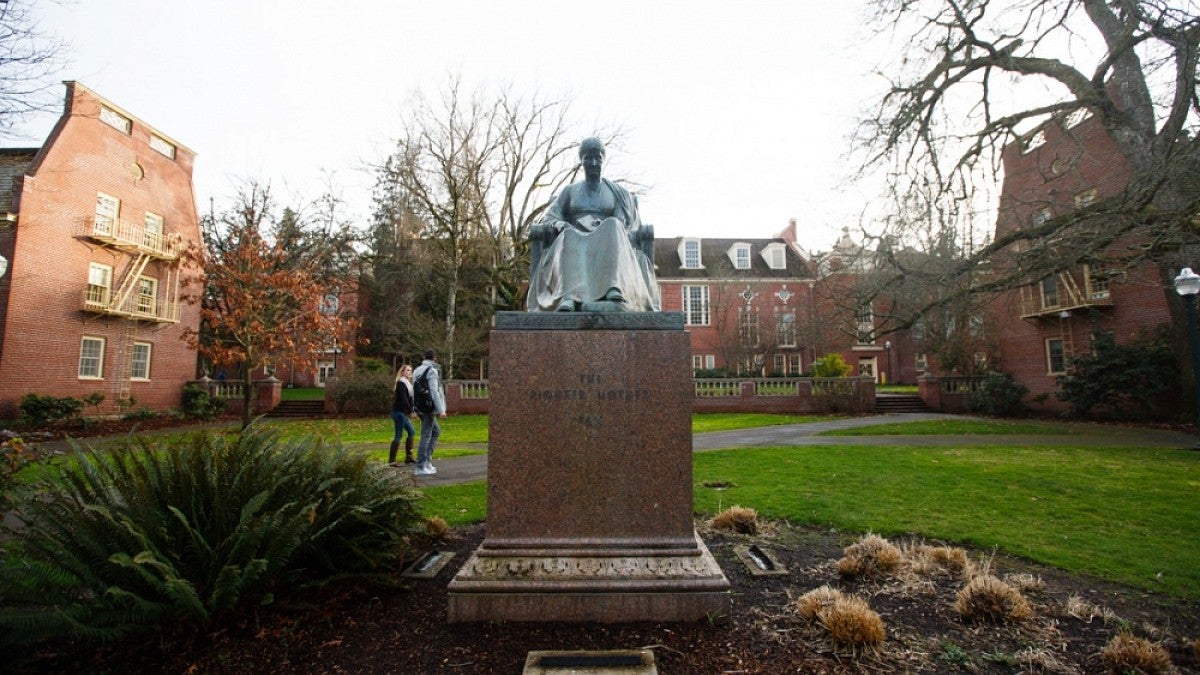Academic leaders have developed a listing of resources and actions to help instructors navigate and report disruptions and other challenges in the classroom.
The Office of the Provost and Academic Affairs and the Graduate School are asking all teaching faculty members and graduate employees to report difficult classroom challenges to their unit heads sothe administration can know what types of support are needed.
Provost Jayanth Banavar sent a memo about classroom management to instructors Dec. 13 after reports of disruptive incidents occurring in fall term. Banavar’s office sent a follow-up message with additional information to academic unit heads Jan. 11 for distribution to their instructional faculty members.
The following resources are available for those looking to educate themselves about how to address potential classroom disruptions or other teaching challenges.
- The Teaching in Turbulent Times workshop will address classroom management issues, setting and reinforcing expectations for how classes will be conducted, and the network of university offices available to support teaching and learning. Instructional faculty are encouraged to attend the workshop on Jan. 17 from 10 to 11:30 a.m. in the Browsing Room of Knight Library. Registration is required.
- The Teaching Engagement Program hosts a wide range of workshops, seminars and conversations about teaching, as well as online resources such as Controversy on Campus and Difficult Topics/Strong Emotions/Challenging Moments.
- The Teaching Engagement Program and the Graduate School are seeking faculty-graduate student pairs to form a Working Group on Classroom Dialogue. Eight pairs representing eight departments will be selected to participate in workshops aimed at developing proactive and responsive strategies for navigating and enriching classroom discussion, including through challenging moments.
- Respect.uoregon.edu provides information about identifying and reporting incidents related to bias, discrimination, or discriminatory harassment and provides a list of resources for faculty and staff.
- The Division of Equity and Inclusion and the Center on Diversity and Community offer one-on-one consultations to faculty members and graduate employees seeking to confront classroom challenges and advance the goals of equity and inclusion on campus.
- The Office of the Provost and Academic Affairs website provides an index of resources for faculty looking for support on topics related to classrooms and teaching.
- The UO Student Conduct Code provides information to help instructors set expectations for students about respectful classroom conduct. The conduct code states, “Engaging in behavior that could reasonably be foreseen to cause disruption of, obstruction of, or interference with the process of instruction, research, administration, student discipline, or any other service or activity provided or sponsored by the university” is considered a violation of the code.
- New classroom decals and posters will be posted in classrooms this term, providing a quick reference for who to contact in case of classroom events and emergencies.
Instructors and anyone who experience an immediate threat to health or safety should call 911. A recent Around the O article outlines the ways the UO Police Department works to facilitate a safe learning environment and partners with area law enforcement to address graffiti and other issues on campus.


